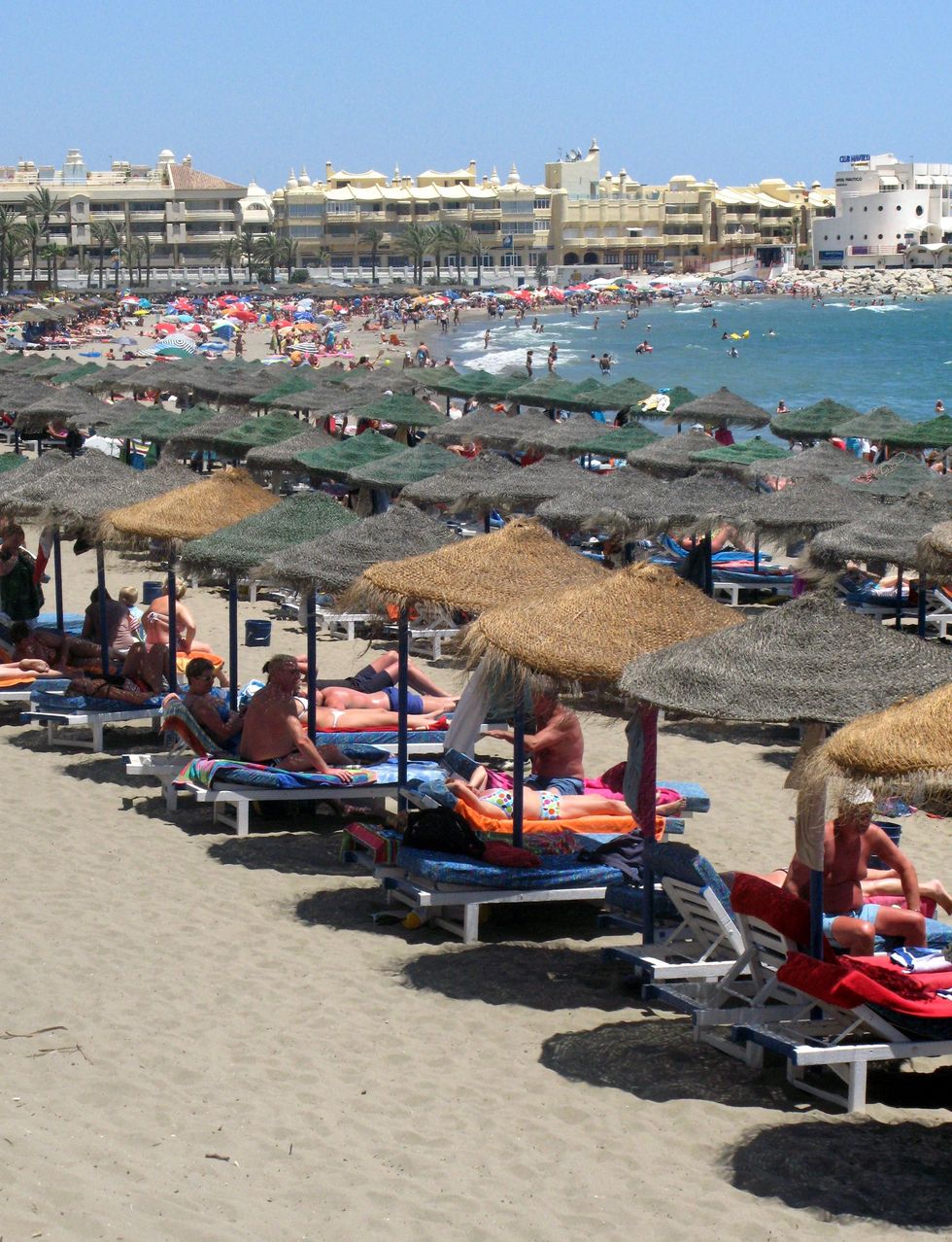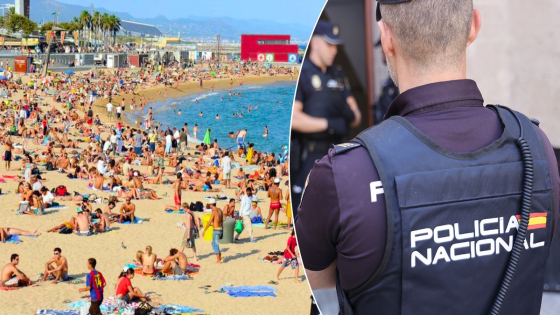Tourists looking to save their spaces on Spain’s beaches have been targeted by the country’s authorities in a new move to crack down on selfish shore-hoggers.
Spanish council bigwigs and police have taken on sun-seeking tourists by imposing hefty fines for leaving belongings on beaches – or confiscating them altogether.
Tourists leaving their towels or umbrellas on the sand while enjoying a spot of lunch can now expect a visit to local police stations, where officers dish out fees of up to €250 for the pleasure of getting back their goods.
While at the administrative level, some local authorities have rolled out bans on placing down chairs and sunbeds on the sand so beach cleaners can get to work before holidaymakers flood the coastline.
Spanish council bigwigs and police have taken on sun-seeking tourists across the country’s beach resorts
PA
Images and videos from tourist hotspots like Malaga show police swarming to beaches to confiscate chairs and the like – before piling vehicles high with the goods.
Furious visitors have fumed at the measures online, with one social media user pointing out the difference in Spain’s approach to squatters and tourists, saying: “You can’t occupy a place on the beach while you go to have lunch, but yes they can occupy your house!”
But Spaniards have welcomed the move, with some sharing images of beaches empty of tourists but filled with the seaside furniture, captioned: “Where are the people? We’ll tell you… sleeping or having breakfast at home.”
Locals continued to voice their support for the measures online, with one explaining: “This practice, which has been carried out for many years, is beginning to be regulated by coastal town councils – because it is not normal to arrive at nine or 10 in the morning and find the first and second rows of beach full and no one around.
MORE FROM SPAIN:

Police have dished out fees of up to €250 for tourists to retrieve their belongings (file photo)
Getty
“Only those who have suffered it understand the importance that town councils, through their local police, regulating the proper use of these spaces.”
The country’s press coverage of the debacle has – expectedly – squarely sided with local authorities, with Spanish media talking up the new rules for their role in clamping down on the “indiscriminate occupation of public domain land”.
One outlet in Spain referenced a council which had been receiving “numerous” complaints for “some years” about the issue, and noted how “when users arrive at the beach mid-morning they find much of the sand occupied by items belonging to people who are not there”.
The local outcry follows a summer in which anti-tourist sentiment in Spain has surged.

Spanish media has praised the clamp-down on the “indiscriminate occupation of public domain land”
PA
In beachside resorts and cities alike, Spaniards have revolted against visitors – particularly those arriving in Spain for its party scene from countries like Germany and the UK.
In Palma de Majorca, crowds tens of thousands strong filled the streets in late July holding placards and shouting in opposition to “mass tourism”, which they have claimed is causing an overcrowding issue and contributing to an already-pressurised housing sector.
In Barcelona, visitors have been made to pay a per-person “tourist tax”, while the city’s Socialist Mayor Jaume Collboni has weighed up raising the levy to nearly double its original rate.
Footage from the Catalan capital showed crowds squirting water pistols and jeering tourists as they filed through the streets of Barcelona – though the Balearic Islands’ regional government urged protesters against using the same tactics.
Source Agencies



